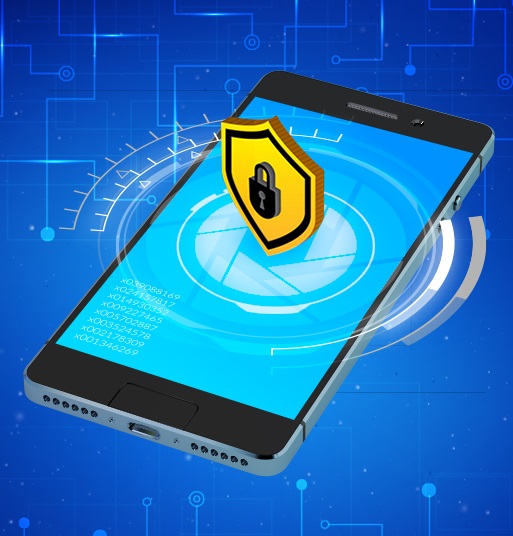Mobile Banking Safety: How To Make Mobile Banking More Secure

Mobile banking services are becoming increasingly popular among bank customers because they are incredibly convenient and save them a lot of time. Clients no longer need to go to their bank's branch during working hours and wait in a long line just to fill out one single application. Instead, they can now use their smartphones to handle the majority of forms, requests, and other bank-related issues.
But how can you be sure that your mobile banking app is secure enough to handle your finances? In this article, we'll go over a few tips for making mobile banking more secure and avoiding app-based banking Trojans and other types of cyberattacks. Aside from downloading a verified app directly from your bank's official website, you must also use multi-factor authentication, set a strong password, and avoid using public Wi-Fi, among other things. Continue reading and practice cybersecurity awareness!
Download a Verified Mobile Banking App
Before downloading a mobile banking app, you must first check if your bank or credit union has one available for download. If it does, you should download it from the specific bank's website — never from third-party websites, which may contain malware and other types of malicious software.
The same can be said about other applications that you might find online. For example, if you want to download some betting apps, you should get them directly from the bookmaker's website or a reliable source, such as BettingApps, to ensure they are safe.
Besides, you should always avoid downloading mobile banking apps available only for one single mobile operating system (e.g., iOS or Android). As a rule of thumb, if an app is available for more than one operating system, it's more likely to be safe.
Use Multi-factor Authentication
Using multi-factor authentication can help you boost your mobile banking security by making it harder for hackers to access your account. Multi-factor authentication requires you to input two different types of information, such as a password and a PIN code, before being able to log in.
Even if an attacker obtains your login credentials, they will still need to find a way to get through your secondary security measure, making their job much more challenging. This way, even if hackers manage to breach your bank's security, they can't easily access your account, which increases the chances of your money remaining safe.
Still, keep in mind that this method is not 100% secure and can be bypassed with enough time and effort on the cybercriminal's part. Nevertheless, it certainly makes it harder for unwanted users to gain access to your personal information.
Choose a Complex Password
Passwords are the first line of defense against cybercriminals since they're the only thing standing between them and your sensitive information. Therefore, you must choose a password that uses at least 12 characters, contains uppercase and lowercase letters, numbers, symbols, and spaces.
To make things easier, you can use a password manager app to create strong passwords by using predefined phrases or words. Using complex passwords takes more time to type but dramatically improves the security of your accounts.
You should never reuse your passwords either since doing so increases the risk of cyberattack. Instead of just adding a number to the end of your password, change certain letters to numbers or symbols instead.
Don't Use Public Wi-Fi
While public Wi-Fi networks are convenient and can save you some time, they may pose a potential security risk for your mobile banking app since they are vulnerable to attacks. Whenever you're using public Wi-Fi, make sure that your banking app is closed by using the multitasking feature on your phone.
If you don't do it, an attacker could easily spy on your activity by intercepting the data sent between your phone and the public Wi-Fi network via a man-in-the-middle attack. If you're in the middle of a mobile banking session, avoid connecting to such a network before accessing your account.
Practice Cybersecurity Awareness
Just as with online banking, using mobile banking services requires you to practice cybersecurity awareness. You need to know how to protect your personal information from hackers by following security best practices.
Aside from using multi-factor authentication, setting a complex password, and other recommendations listed above, you can do some additional things to protect yourself online. For example:
- always check your bank accounts regularly for suspicious transactions or unauthorized charges,
- update your antivirus software regularly,
- use a firewall on all of your devices,
- avoid clicking on suspicious links or opening attachments sent to you via email,
- keep an eye out for cybercrime-related news.
Don't Share Your Personal Information Online
You should never share your personal information with strangers online, even if they claim to be bank employees or representatives. This way, you'll avoid identity theft and other types of cyberattacks that often target banking customers.
If anyone asks you for personal information such as name, address, or social security number, you should notify your bank immediately and assume that the email is a scam. Stay alert, do not assume that everyone online is your friend, and you should encounter no problems while surfing the web or making mobile banking transactions.
Conclusion
Mobile banking is becoming more popular every year because it makes life easier for bank customers. You also might find yourself using a banking app from time to time. But if you don't follow safety measures, you may put yourself at risk of falling victim to cybercriminals who are constantly evolving their methods of attack.
With this being said, there are some things that you can do to minimize the threat of becoming a victim of a cyberattack. You might want to create strong passwords, use multi-factor authentication, and avoid using public Wi-Fi networks.
As long as you follow the tips discussed in this article, protecting yourself online should be much easier than you'd expect. Good luck and happy banking!
839GYLCCC1992



Leave a Reply